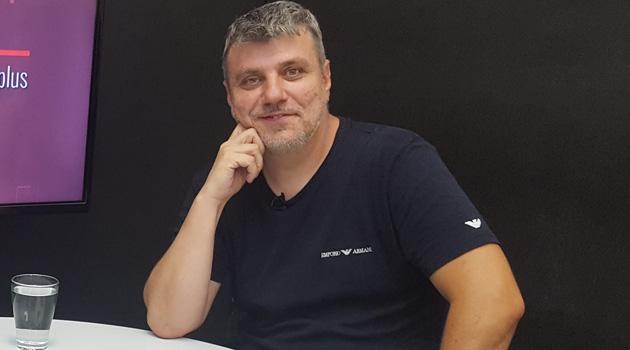Jaroslav Miko: Radek Bangas remarks about the Romani community in the Czech Republic are untrue, especially his "guesstimates"

I have been hesitating for quite a while over whether to express my opinion about Radek Banga’s new book and especially about his public comments on the position of Romani people in Czech society, and I have ultimately decided to publish my perspective, because Romani-related matters are of existential concern to me. First of all I would like to say that I value Radek and absolutely respect everybody’s right to publicly express their views.
Expressing oneself publicly is understandably legitimate. Whether what somebody says is based in truth or not is, however, another matter, and in that regard, I am sharply opposed to what Radek Banga has recently said.
This mainly has to do with his specific public remarks in the DVTV interview, where he says that “at least 30 %” of Romani parents conceive their children in order to qualify for welfare. Not only is such a statement untrue, not only does it have no basis in any sociological studies that might have produced such numbers or such data, but a statement of this kind completely harms the position of Romani people in the Czech Republic, which is already so depressing, and it affirms many people from the majority society in their entrenched prejudices against us.
Certainly it is true that a significant proportion of Romani people in the Czech Republic are dependent on the welfare system, but surviving on benefits is genuinely no victory. Anybody who believes otherwise should give it a try themselves for a couple of months.
Second, the mere fact that some Romani people live on welfare does not automatically mean those parents are intentionally conceiving children in order to be awarded welfare. Such a claim is illogical, because the welfare benefits awarded for children barely cover the cost of living associated with raising them.
The fact that among some Romani people, those who are parents are failing to prepare their children for life – i.e., their education, upbringing, etc. – is certainly true, but it is also necessary to name the causes for this state of affairs, not just to pronounce judgment on them. According to Czech Government reports, half of the population of Romani people today is fully integrated into society, and I would add that the other half has not yet extricated themselves from the state-sponsored discrimination practiced during the communist era, which was, among other matters, associated with segregating Romani children when it came to their equal access to education, as well as with the fact that the majority Czech society has pushed the Roma into the circumstances they are now in, and not just during communism, but also before the communist era and following it.
Radek Banga, thanks to his undisputed abilities and popularity, has been given an opportunity to correct this situation, which would be the best for us all, in the final analysis. Through his cheap judgments, however, and his guesstimated numbers, he has merely joined the ranks of all those here who pronounce cheap judgments about the Romani community.
In my view, Radek Banga has just wasted a chance to do something positive to improve the position of Romani people in the Czech Republic. Last but not least, it has to be said that Radek’s own brother, Mr Patrik Banga, has publicly questioned what Radek has written in his book about the relationships in their family and their family friends.
Certainly it is necessary to call things by their real names – that is the only way to improve things – and there is a need to be critical of our own, but that decidedly does not mean and cannot mean we should say things that are not true, throw numbers around without any basis in fact, and affirm the Czech public’s entrenched prejudices and stereotypes about the Roma. If there are problems – and there certainly are – then not only must they be named, but we must also speak about their causes, because without understanding the causes, any judgment made of the situation will be a biased one.
